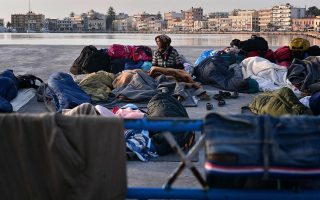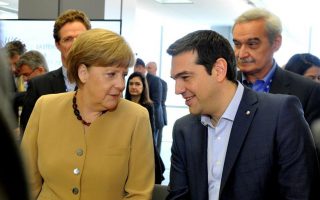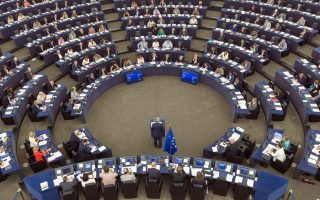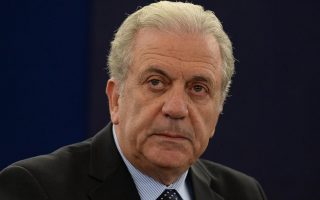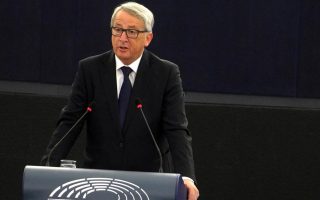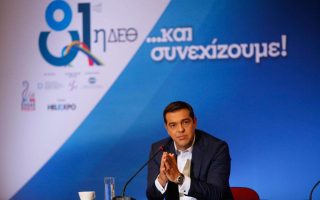European leaders seek elusive ‘road map’ after Brexit shock
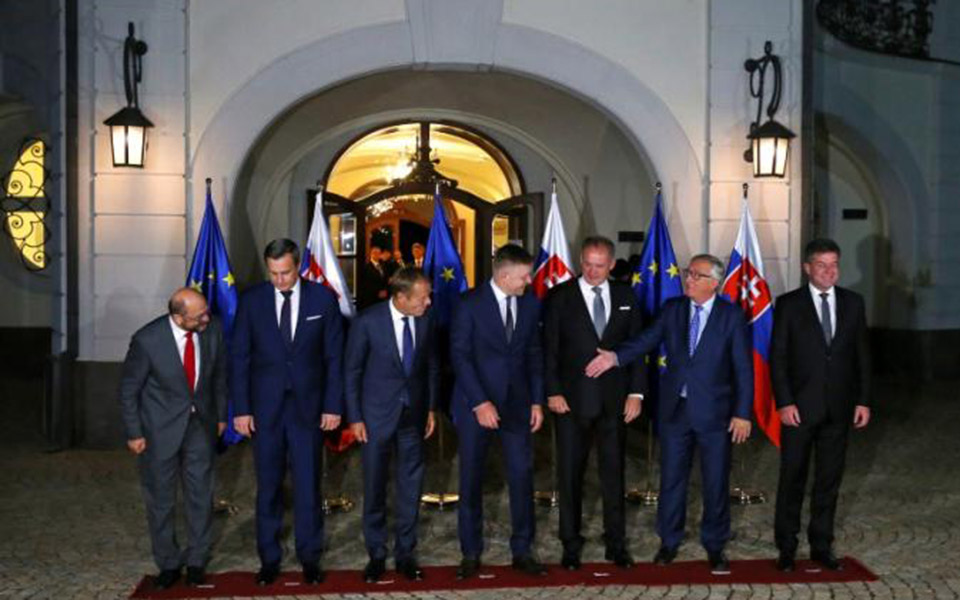
Reeling from Britain’s decision to leave, the European Union’s remaining 27 states met on Friday to inject momentum into the ailing EU project even as they acknowledged deep divisions over the refugee crisis and the economy.
Years of economic crisis have pushed up unemployment in many member states, while a spate of attacks by Islamist militants and a record influx of migrants have unsettled voters, who are turning increasingly to populist, anti-EU parties.
The “informal” summit – so called because any formal one still has to include Britain until it leaves the bloc – is aimed at restoring public faith in the European Union, which for decades was seen as a guarantor of peace and prosperity but is now, officials acknowledge, in an “existential crisis.”
“Everyone is aware of the situation. Britain has decided to leave and there are questions about the future of Europe,” French President Francois Hollande said before the meeting in the Slovak capital. “Either we move in the direction of disintegration, of dilution, or we work together to inject new momentum, we relaunch the European project.”
Greek Prime Minister Alexis Tsipras said: “Europe should stop sleepwalking in the wrong direction.”
The aim in Bratislava is to agree a “road map” for reform of the EU that can be finalised over the next half year. More concrete proposals would be presented at a summit in March of next year that coincides with the 60th anniversary of the bloc’s founding Treaty of Rome.
But because of divisions on some of the biggest issues, leaders are expected to stick to areas of common ground.
They will pledge closer defense cooperation and agree to bolster security along the EU’s external borders, as well as discussing new initiatives to generate growth and jobs.
“All these countries have an interest in fighting terrorism, in a more secure Europe, in preventing uncontrolled migration, all have an interest in economic cooperation to create more jobs,” said Dutch Prime Minister Mark Rutte.
In private however, officials admit that major reform may not be possible until elections in the Netherlands, France and Germany are out of the way by late 2017.
Even after that, it is unclear whether Germany and France – for decades the motor of closer European integration – can bridge differences over economic policy.
“The point is not to simply expect a solution to Europe’s problems from one summit – we are in a critical situation – but rather it is about showing through actions that we can be better,” German Chancellor Angela Merkel said.
Europe’s dominant leader in recent years, Merkel is now under mounting political pressure at home because of her welcoming stance towards refugees one year ago, a position which alienated many of her EU partners.
In a sign of her waning power, she has failed to convince eastern European countries Poland, Hungary, the Czech Republic and summit host Slovakia to accept refugee quotas.
Known collectively as the Visegrad Four, they will submit their own text of proposals at the summit, Hungarian Prime Minister Viktor Orban said, underscoring the divide.
Mujtaba Rahman of political risk consultancy Eurasia said the summit may only end up advertising “the scarcity of common ground” among the EU-27 and the weakness of its most important leaders Merkel, Hollande and Italy’s Matteo Renzi.
Renzi has said he will step down later this year if he loses a referendum on constitutional reform.
The leaders are not expected to discuss in any detail their looming divorce negotiations with Britain, which are likely to hang over the bloc for years, sapping resources, attention and threatening further divisions.
[Reuters]
